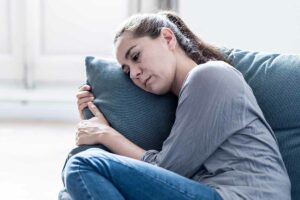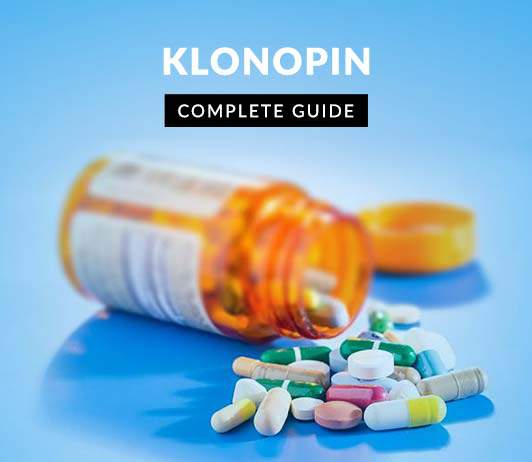Clonazepam, also known as Klonopin, is a benzodiazepine medication. That is used to treat seizure disorders and panic disorders. It is a powerful drug that can have serious side effects if not taken properly. If you are considering taking clonazepam, it is important that you understand everything about the drug. Before you make a decision. In this blog post, we will discuss the basics of clonazepam. Including how it works, dosage information, and potential side effects.
Contents
Basics To Know About Clonazepam (Klonopin)

There are certain basic things that you should be aware of before taking Clonazepam (Klonopin). This medication is a benzodiazepine, which is a class of drugs. It is used to treat anxiety and seizure disorders. It works by depressing the central nervous system. Clonazepam (Klonopin) can be habit-forming and should be used only by the person it was prescribed for.
You should not take Clonazepam (Klonopin) if you are allergic to it, or if you have:
- A history of addiction to alcohol or other drugs.
- Any depression, suicidal thoughts, or attempted suicide.
- Liver disease or kidney disease.
- pancreatitis.
How Klonopin Is Used?

Klonopin is a medication that belongs to a class of drugs called benzodiazepines. It is used to treat anxiety and seizure disorders. Klonopin works by depressing the central nervous system, which makes it an effective treatment. Klonopin is available in tablet and liquid form as well.
The usual starting dose for adults with anxiety is 0.25 mg two or three times daily. The starting dose for adults with seizure disorders is 0.05 mg two times daily.
Klonopin should be taken exactly as prescribed by your doctor. Do not take more or less of this medication than prescribed. Klonopin can be habit-forming and should be used only by the person it was prescribed. Never share this medication with another person, especially someone with a history of drug abuse or addiction.
Klonopin can be taken with or without food. If you take Klonopin more than once daily. Take it at evenly spaced intervals to keep a constant level of medication in your body.
Do not stop taking this medication abruptly without first talking to your doctor. Stopping this medication suddenly can cause seizures and other serious side effects. Your doctor will gradually reduce your dose before stopping it completely.
Dosage Information
Clonazepam is available as a tablet, oral solution, and injectable form. The usual starting dose for adults is 0.25 mg to 0.50 mg taken three times daily. Dosages may be increased by increments of 0.25 mg to 0.50 mg every third day. Until the desired effect is achieved. The maximum recommended daily dose is 20 mg per day in divided doses.
The dosage should not exceed more than 20 milligrams (mg) per day because it can lead to addiction or overdose problems. For people with liver disease, the dosage should not exceed more than 12 mg per day due to decreased Klonopin metabolism. Talk to your doctor about the best dosage for you.
Clonazepam is also available as a rectal gel. It is used to treat status epilepticus. The dosage is 0.15 mg/kg to a maximum of 15 mg rectally administered every five minutes as necessary (maximum three doses).
Klonopin can interact with other medications. So make sure to tell your doctor all the medications and supplements you’re taking before starting Klonopin therapy. Also, let them know if you have any allergies or health conditions that could affect your treatment plan.
Risks In Sudden Withdrawal
 There are some risks associated with abruptly stopping Klonopin. If you are taking the medication as prescribed and have no intention of discontinuing it. There is usually no need to worry about any potential risks.
There are some risks associated with abruptly stopping Klonopin. If you are taking the medication as prescribed and have no intention of discontinuing it. There is usually no need to worry about any potential risks.
However, if you do decide to stop taking Klonopin suddenly. Or without your doctor’s knowledge, there are a few things you should be aware of.
Some of the risks are:
If you have been taking Klonopin for an extended period of time. It is recommended that you taper off the medication gradually. This will help to avoid any potential risks associated with suddenly stopping the medication.
If you are unsure about how to properly taper off Klonopin. You should speak to your doctor or a medical professional before making any changes to your dosage.
Klonopin is a safe and effective medication when used as prescribed. But as with all medications, there are potential risks and side effects that you should be aware of before starting treatment.
Things To Avoid While Taking Klonopin
 When you are taking Klonopin, there are certain things that need to avoid. Such as:
When you are taking Klonopin, there are certain things that need to avoid. Such as:
- Alcohol: It can amplify the sedative effects of Klonopin, which could lead to dangerous consequences.
- Driving: Klonopin can impair your ability to drive safely. So avoid driving if you are taking this medication.
- Heavy machinery: It can also impair your ability to operate heavy machinery safely. So avoid doing activities like this while taking the drug.
- Strenuous exercise: Due to the sedative effects of Klonopin, it’s best not to participate in strenuous physical activity while taking it. This could include activities such as running or weightlifting.
- Foods and drinks with caffeine: Caffeine can increase the effects of Klonopin. so avoid drinking coffee or eating foods that contain caffeine while taking this medication.
- Grapefruit juice: The citric acid in grapefruit juice can increase the absorption of Klonopin, which could lead to dangerous side effects. So if you’re taking Klonopin, it’s best to avoid drinking grapefruit juice.
By avoiding these things while taking Klonopin. You can help prevent any potentially dangerous side effects. If you have any questions about what you should or shouldn’t do while taking Klonopin, be sure to ask your doctor or pharmacist. They will be able to give you more specific instructions based on your individual situation.
Side Effects Of The Klonopin

These are two types of side effects related to the drug. One is most common and easily treated. But, another type of effect can cause serious issues.
Common Side Effects Of The Klonopin
- Dizziness
- Tiredness
- Muscle weakness
- Loss of coordination
- Slurred speech
- Memory problems
- Problems with vision
- Dry mouth
- Constipation
- Weight gain or loss
- Irritability
While most of these side effects are mild. And eventually will go away on their own. But, there are some that may require medical attention. If you experience any of the following serious side effects, seek immediate medical help:
Serious Side Effects Of The Klonopin
- Seizures (convulsions)
- Yellowing of the skin or eyes (jaundice)
- Abnormal bleeding or bruising
- Unusual weakness
- Fever
- Rash
However, there is a wide range of potential side effects, and everyone reacts differently to medication. Be sure to talk to your doctor about any concerns you have.
Additionally, it’s important to be aware that Klonopin can interact with other medications. Be sure to give your doctor a complete list of all the medications you’re taking. Including over-the-counter drugs, vitamins, and herbal supplements. And don’t forget to let them know if you drink alcohol or use recreational drugs as these can also interact with Klonopin.
Be sure to keep all appointments with your doctor. So they can monitor your progress while you’re taking Klonopin. And if you have any questions or concerns, don’t hesitate to talk to them.
Alternatives Of Clonazepam (Klonopin)
 If you’re looking for alternatives to Clonazepam (Klonopin), there are a few options available. Some of these:
If you’re looking for alternatives to Clonazepam (Klonopin), there are a few options available. Some of these:
All of these medications are classified as benzodiazepines. Which works by affecting the chemicals in the brain that may be unbalanced in people with anxiety.
Benzodiazepines are generally only meant to be used for short-term relief from anxiety. As they can become addictive if used for long periods of time. If you’re looking for a longer-term solution.
Other Treatment Option
There are other treatment options available that don’t involve medication. Such as:
Cognitive-behavioral therapy
CBT helps you to identify and change negative thoughts. And behaviors that are contributing to your anxiety. Also it takes time to change thought patterns and behaviors.
Exposure therapy
This type of therapy gradually exposes you to the things that trigger your anxiety. In a safe and controlled environment. With the goal being to eventually be able to confront your triggers without feeling anxious.
Lifestyle changes
Making lifestyle changes can also help to reduce anxiety levels. Such as:
- Eating a healthy diet
- Getting regular exercise
- Reducing stress levels
Relaxation techniques
Practicing relaxation techniques, such as:
- Yoga
- Meditation
- Deep breathing
These techniques can help you be way more relaxed. And better able to cope with anxiety-inducing situations.
Benzodiazepines are generally only meant to be used for short-term relief from anxiety. Therefore, if you are looking for a longer-term solution, there are other treatment options available that don’t involve medication.
Conclusion
To conclude, Klonopin is a very effective medication for treating anxiety and panic disorders. It works by increasing the levels of GABA in the brain, which has a calming effect. So, it is important to talk to your doctor.
Clonazepam (Klonopin) is a prescription medication that is only available through a doctor’s order. Be sure to follow your doctor’s instructions when taking this medication. Do not stop taking clonazepam suddenly as this can cause withdrawal symptoms.
A Word From Therapy Mantra
Your mental health — Your psychological, emotional, and social well-being — has an impact on every aspect of your life. Positive mental health essentially allows you to effectively deal with life’s everyday challenges.
At TherapyMantra, we have a team of therapists who provide affordable online therapy to assist you with issues such as depression, anxiety, stress, workplace Issues, addiction, relationship, OCD, LGBTQ, and PTSD. You can book a free therapy or download our free Android or iOS app.


